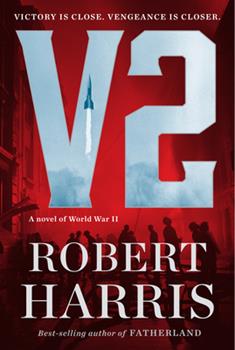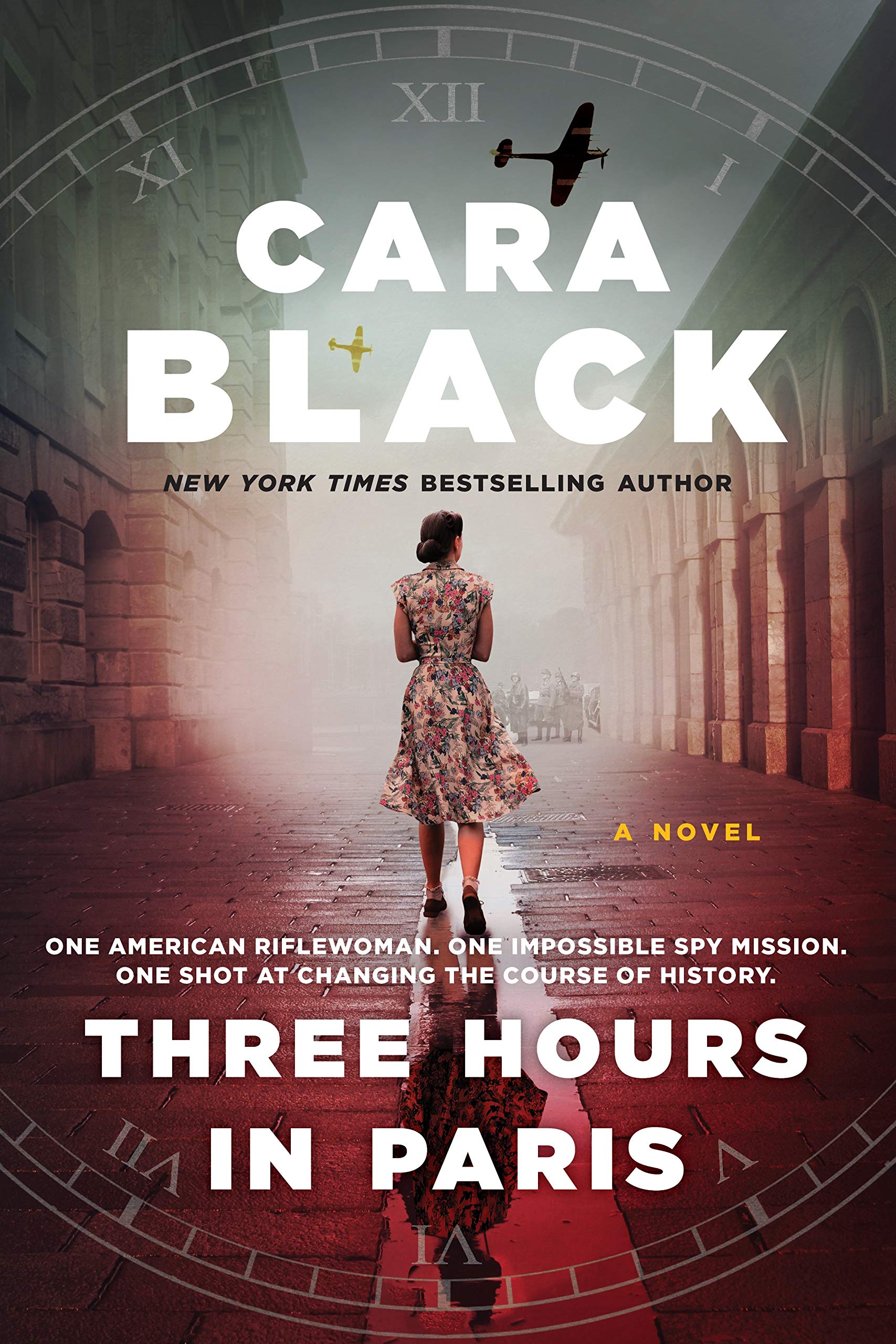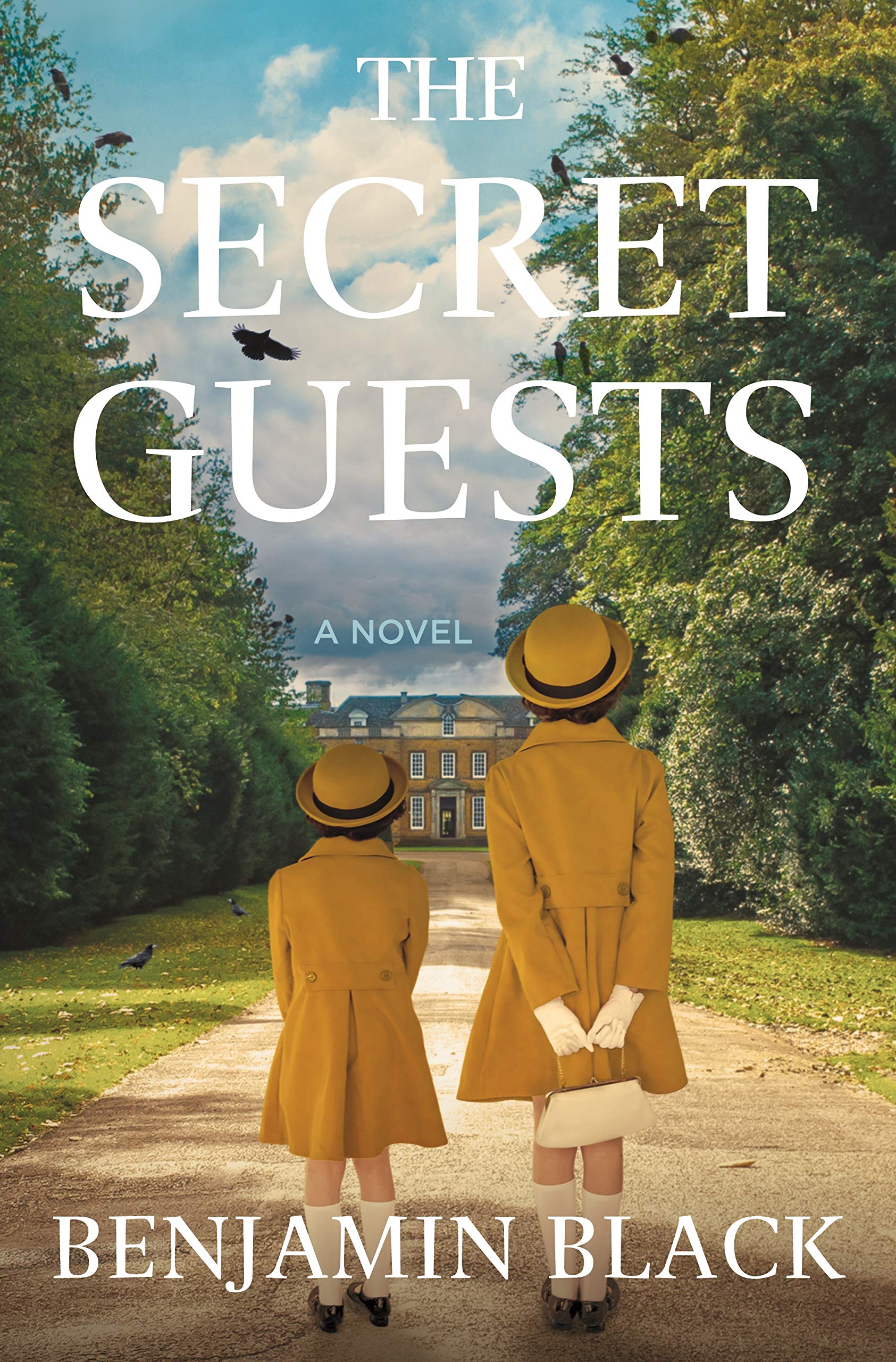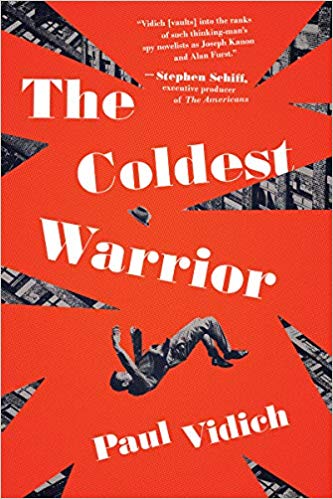What are the top spy novels of 2020? Here are my picks (updated as novels are published throughout the year). Please note that I’m partial to historical fiction and authors who have a way with words; the novels I’ve selected reflect that bias.
V2: A novel of World War II by Robert Harris
Novelist Robert Harris (Fatherland; Munich) has returned with a World War II thriller about the British military response to the V2 rockets that the Germans sent raining down on London in 1944, destroying buildings and killing civilians. The development and use of the V2 reflected Adolf Hitler’s desperate quest for miracle weapons (Wunderwaffe), an attempt to stave off Germany’s defeat at the hands of the Allies. While the German missiles caused death and damage in England, they had little, if any, impact on the outcome of the war.
Harris’ novel focuses on two characters—Kay Caton-Walsh, a young British intelligence officer who becomes involved in the search-and-destroy efforts against the V2 launch sites in Belgium; and Rudi Graf, a V2 engineer, whose doubts about Nazism and his role in the German war machine have grown. Graf, and his friend, Wernher von Braun, the leader of the V2 program, had been drawn to missile technology by their dream of building spaceships.
Harris delivers a tightly-plotted, deeply-researched tale, with enough twists and turns to keep the reader glued to the page. At the same time, he delivers a scorching indictment of von Braun—who was brought to the United States after the war and became the architect of the American space program—as an amoral schemer and careerist who welcomed the SS’s war crimes at Peenemünde (slave labor, summary executions, etc.) when they helped him build his missiles. Sadly, when it came to the complicity of von Braun and other German scientists, the exigencies of the Cold War arms race trumped the interests of justice.
Three Hours in Paris by Cara Black
The target, a political leader. The protagonist, his potential assassin. The premise isn’t new—it’s the basis for many historical thrillers, including Geoffrey Household’s marvelous Rogue Male and Frederick Forsyth’s The Day of the Jackal. Cara Black has adapted this plot, with a clever twist, in a novel set in Paris in June 1940, just as the Nazis have occupied the City of Light. Her protagonist in Three Hours in Paris, an American named Kate Rees who happens to be a crack shot with a rifle, is recruited by British intelligence to kill Adolf Hitler when he visits Paris for three hours (hence the novel’s title).
Kate Rees will fail in her mission—and the reader knows this in advance—and so Black’s challenge is to explore why her riflewoman misses her mark when she has Hitler in her sights, and how she will evade the German detective, Gunter Hoffman, who is intent on hunting her down. It’s a difficult task, but she succeeds in crafting a page-turner that keeps the reader guessing. Her deep knowledge of Parisian life during World War II adds a welcome authenticity to her tale.
Some may find that Three Hours in Paris too often veers into Dan Brown territory, with Kate threatened with capture by the Germans numerous times and always managing a clever (and near miraculous) escape. This focus on close calls makes for an engaging read, but calls for the more-historically inclined reader to suspend disbelief a few times too many.
The Secret Guests by Benjamin Black
Benjamin Black is a pen name for John Banville, an Irish author who is no stranger to writing about espionage—his 2009 novel, The Untouchables, retold the story of the infamous Cambridge spies through the eyes of an Anthony Blunt-like figure, Victor Maskell. Now, in The Secret Guests, Black/Banville has produced a more commercial spy thriller about the World War II sequestration of Britain’s princesses Elizabeth and Margaret on an Irish estate during the height of the Blitz. The royal heirs have been sent to neutral Ireland with the believe they will find safety there, removed from the nightly bombing of London by the Luftwaffe. Is the premise solely fictional? The book jacket for The Secret Guests claims that Black/Banville “has good information that princesses were indeed in Ireland for a time….”
Banville, a Dubliner, has a keen eye and ear for the pervasive class distinctions of Irish and British society. The main characters in the novel reflect those divisions: the Anglo-Irish detective, Strafford, assigned to watch over the girls; their host, the crusty and snobbish Duke of Edenmore; the well-bred English secret agent Celia Nashe; the icy British diplomat, Richard Lascelles; and the corpulent and shifty Irish pol, Daniel Hegarty, who negotiates the terms of the princesses’ stay at Clonmillis Hall.
Complications quickly arise—keeping the identity of the royal guests secret from the “help” at the Hall and from the nearby townspeople proves impossible. Many of the locals have bitter memories of the violence meted out by British troops during Ireland’s struggle for independence; revenge could be a motive for retaliating against the princesses. Since we know the historical outcome for the girls (Elizabeth ascending to the throne, and Margaret embracing the role of “rebel sister”) the suspense lies in how Detective Strafford and Agent Nashe will keep them from harm.
The novel comes at a curious time for the British monarchy. The furor over the Queen’s role in Brexit, the absurd drama over Prince Harry and Meghan Markle’s Megxit, and the entanglement of Prince Andrew with the late sex offender Jeffrey Epstein have raised questions about the future of the institution in the 21st century. In an increasingly secular Great Britain, how does the concept of a divinely-anointed monarch hold up? Will the Royals be retained for symbolic reasons? Or as the host family of tourist attractions like Buckingham Palace? The world of The Secret Guests, when the state of the British monarchy carried geopolitical weight, does seem long ago and far away.
The Coldest Warrior by Paul Vidich
Paul Vidich’s compelling new novel The Coldest Warrior explores the dark side of the Central Intelligence Agency’s Project MKUltra, a 1950s foray into psychological warfare that featured mind control experiments with LSD and other drugs given to unwitting human subjects. The program was first exposed by the Rockefeller Commission and the Church Committee in 1975, as part of a broader public airing of CIA dirty tricks (including assassination plots, illegal domestic spying, and other wrongdoing). These skeletons in the CIA’s closet were dubbed the Family Jewels by Agency insiders.
Vidich focuses his novel on a specific crime, the murder of Dr. Charles Wilson, an Army bio-weapons expert who is pushed to his death from the ninth floor of a Washington, D.C. hotel in 1953. While Wilson’s killing is fictional, its circumstances mirror the death of researcher Frank Olson, who was administered LSD by Sidney Gottlieb, the head of Project MKUltra, and fell or jumped to his death in New York City. After this chilling opening, The Coldest Warrior jumps forward to 1975, when the CIA is grappling with the public disclosure of its illegal activities of the past two decades.
Veteran CIA officer Jack Gabriel is asked to take on one last assignment before retiring, investigating possible Agency involvement in Wilson’s alleged suicide. (Did Vidich, who writes with a literary flair, name Gabriel after the guardian archangel of the Scriptures?) As Gabriel examines the evidence in this cold case, he realizes that the guilty parties now hold high positions in the corridors of power. The last third of the novel, as Gabriel moves toward a confrontation with those responsible, is particularly suspenseful, with a somber and fitting resolution.
The Coldest Warrior is more than an entertaining and well-crafted thriller; Vidich asks questions that remain relevant today. In a liberal democracy, how can we keep intelligence agencies acting within bounds? There will always be the temptation to bend or break the law, to adopt immoral tactics, in the face of threats seen as existential. The men involved in Project MKUltra thought the ends justified the means—as they saw themselves on the side of the angels in resisting Communism. The secrecy involved makes bringing Deep State wrongdoers to account very difficult, if not impossible (vide: the lack of accountability for those involved in the CIA’s black site torture of terror suspects).
There are no easy answers to this challenge—legislative efforts at tighter oversight of the CIA have produced mixed results. Our best hope for keeping the national security establishment in check requires a skeptical Congress and a critical and fearless press. In a historical irony, today conservative Republican members of Congress—normally deferential supporters of the national security state—are the ones asking the toughest questions about the motives and methods of our intelligence agencies.
Here are past lists of top spy thrillers. You can click for:
Ten classic British spy novels
Copyright © 2020 Jefferson Flanders
All rights reserved



